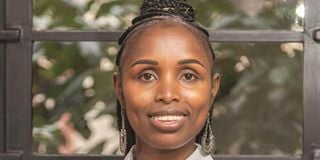The missing link in war against polio

What you need to know:
- The Ministry of Health needs to bridge the knowledge gap on polio transmission and prevention strategies. Education is the key to lasting solutions within societies.
- Through such interventions, the war on polio will be half won and we’ll be one step closer to a polio-free world.
Polio, or poliomyelitis, is a highly contagious disease caused by a virus that attacks the nervous system.
The infectious disease is transmitted from person-to-person mainly by ingesting food or water contaminated with faecal matter from an infected person, with children younger than five years being more likely to contract the virus than any other group.
According to the World Health Organization, the recent case in Malawi is the first type 1 wild polio-virus in Africa in more than five years. The last case of wild polio-virus in Africa was identified in northern Nigeria in 2016 and globally there were only five cases in 2021.
This means that the disease still poses a major threat to the African continent. It may also imply that we need to do things differently than we have done before.
Polio vaccine provides the best protection against polio disease. In fact, this is the second virus to be eradicated since smallpox 43 years ago. But immunisation coverage remains low in Africa, a situation that has been exacerbated by conflict in some countries and now the global Covid-19 pandemic. These challenges weaken the polio eradication strategies that have been tried in the past.
Historically, outbreaks in Kenya have been quickly averted with two to three rounds of supplementary vaccination campaigns. Yet, even with such successful interventions, it becomes a matter of time before a similar threat faces us again. Why is this the case?
The missing link is the lack of education on polio-virus transmission and prevention for caregivers and children. The government runs to quickly upscale vaccination but forgets that inadequate knowledge on polio-virus transmission and prevention at the community level is a determining factor to the eradication strategies that it should constantly undertake. If you randomly walked to a mother of a young child in Kenya and asked them how polio is transmitted, they probably will not have an answer for you.
Conversely, knowledge on transmission and prevention of the Covid-19 pandemic was done en masse. This means we can extrapolate the methods used to onboard community engagement during Covid-19 to manage polio.
Communities are not only recipients of health services but also a critical part of decision making in regards to their own health. The government owes it to ensure that the water sources in our public schools and institutions are safe to drink.
Utilisation of health services depends strongly on community ownership, which comes through community participation. It is important to have some of the preventative efforts carried out by local health workers within a given community. In this way, misconceptions at the grassroots level will be addressed at the grassroots level.
The Ministry of Health needs to bridge the knowledge gap on polio transmission and prevention strategies. Education is the key to lasting solutions within societies. Through such interventions, the war on polio will be half won and we’ll be one step closer to a polio-free world.
Dr Catherine Gathu is a consultant physician and programme director, Department of Family Medicine, Aga Khan University Medical College, East Africa




